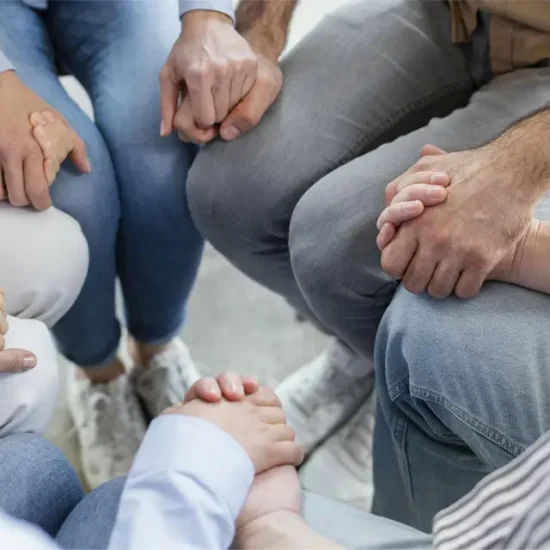In New Jersey, the battle against addiction is fought on multiple fronts. Addiction treatment centers play a vital role in guiding individuals towards recovery, but their success is often dependent on the strength of their support systems. These systems serve as the foundation on which these centers are built, bolstering their efforts and enhancing the quality of care provided.
By offering a comprehensive network of services, including counseling, therapy, and access to support groups, addiction treatment centers in New Jersey can foster an environment of healing and growth. One key aspect of building strong foundations is the establishment of partnerships with local healthcare providers and community organizations. This collaboration allows addiction treatment centers to have a more holistic approach, addressing not only the physiological aspects of addiction but also the psychological and social factors that contribute to substance abuse. Additionally, these partnerships enable centers to provide a continuum of care, ensuring that individuals receive the support they need throughout their recovery journey.
By focusing on building strong support systems, addiction treatment centers in New Jersey can offer comprehensive and effective care for individuals struggling with addiction. These systems, built on collaboration and a commitment to healing, are the pillars upon which recovery is built.
The Importance of Support Systems in Addiction Treatment
Support systems play a crucial role in addiction treatment, contributing significantly to an individual’s successful recovery. These systems encompass various forms of assistance and reinforcement, emphasizing the importance of a comprehensive approach to addiction treatment. Here are key aspects underscoring the significance of support systems:
- Emotional encouragement and accountability: Knowing they have people who believe in them and hold them accountable can be a powerful motivator for individuals in recovery.
- Reduced isolation and stigma: Addiction thrives in isolation, but a supportive network provides a sense of belonging and combats the negative stigma associated with the disease.
- Practical assistance: Support systems can help with daily tasks, transportation, childcare, and navigating resources, removing practical barriers to recovery.
- Celebration of successes: Sharing milestones and achievements with a supportive group reinforces positive steps and fosters a sense of accomplishment.
Connecting with Support Systems in New Jersey
Fortunately, New Jersey offers a wealth of resources to help individuals in recovery build strong support systems:
- Family therapy: Many addiction treatment centers incorporate family therapy into their programs, helping loved ones understand the disease and learn how to offer constructive support.
- Support groups: Numerous peer support groups like Alcoholics Anonymous (AA) and Narcotics Anonymous (NA) offer regular meetings where individuals can connect with others on similar journeys.
- Community-based organizations: Local organizations offer recovery support services, employment assistance, and social activities specifically designed for individuals in recovery.
- Online communities: Online forums and social media groups connect individuals with others across the state and beyond, fostering a sense of community and shared experience.
Addiction Treatment Centers Partnering with Support Systems
New Jersey addiction treatment centers recognize the importance of support systems and actively work to strengthen them:
- Collaboration with family therapists: Treatment centers involve families in the recovery process, providing education and support tools.
- Referrals to support groups: Centers often connect individuals with relevant support groups based on their specific needs and location.
- Community partnerships: Treatment facilities collaborate with local organizations to ensure seamless access to essential resources after discharge.
- Alumni programs: Many centers offer alumni programs that provide ongoing support and connection beyond formal treatment.
Types of support systems available for addiction treatment centers
Addiction treatment centers commonly provide a variety of support mechanisms to aid individuals in overcoming substance abuse. The following categories outline some prevalent forms of assistance:
1. Therapeutic Interventions:
- Individual Counseling: Private sessions with a therapist for addressing personal challenges and cultivating coping strategies.
- Group Therapy: Collective sessions with peers facing similar obstacles, fostering a sense of community and mutual understanding.
2. Medical Assistance:
- Medication-Assisted Treatment (MAT): Prescribed medications to alleviate withdrawal symptoms and cravings, often complemented by counseling.
- Medically Supervised Detoxification: Withdrawal under the supervision of medical professionals to ensure safety and comfort.
3. Structured Recovery Programs:
- 12-Step Programs: Such as Alcoholics Anonymous (AA) or Narcotics Anonymous (NA), providing a structured, peer-supported approach to recovery.
4. Holistic Approaches:
- Yoga and Meditation: Practices promoting mindfulness and stress reduction.
- Art or Music Therapy: Creative avenues for expressing emotions and facilitating healing.
5. Involvement of Families:
- Family Therapy: Inclusion of family members in the recovery process, addressing familial dynamics and establishing support networks.
6. Post-Treatment Planning:
- Sober Living Homes: Transitional housing with support for individuals in the early stages of recovery.
- Ongoing Counseling: Follow-up sessions and continuous therapy to prevent relapse.
7. Educational Support:
- Life Skills Training: Instruction in practical skills for daily living and employment.
- Relapse Prevention Education: Equipping individuals with strategies to identify and navigate potential triggers.
8. Peer Assistance:
- Sober Companions: Individuals offering support and accountability during the recovery journey.
- Recovery Coaching: Guidance from those who have successfully overcome addiction.
9. Community Resources:
- Community Support Groups: Informal gatherings fostering a sense of belonging and understanding.
- Employment Assistance: Programs aiding individuals in reintegrating into the workforce.
10. Spiritual Guidance:
- Spiritual or Faith-Based Counseling: Tailored for individuals drawing strength from their spiritual beliefs.
- These tailored support systems ensure a comprehensive and individualized approach to the process of addiction recovery.
Benefits of implementing support systems in addiction treatment centers
Standing alone in the fight against addiction can be daunting. But imagine a network of support, cheering you on and offering a safety net when you stumble. That’s the power of integrating support systems into addiction treatment centers:
1. Enhanced Treatment Efficacy:
- Implementing support systems in addiction treatment centers significantly enhances the overall efficacy of interventions. The combination of emotional, social, and professional support ensures a comprehensive approach, addressing the multifaceted aspects of addiction.
2. Reduced Relapse Rates:
- Support systems play a pivotal role in equipping individuals with the tools and strategies needed to identify and navigate potential triggers. This proactive approach contributes to a reduction in relapse rates, promoting sustained recovery.
3. Improved Mental Health Outcomes:
- The inclusion of support systems, such as counseling and peer groups, contributes to improved mental health outcomes. Emotional support and therapeutic interventions aid individuals in managing stress, anxiety, and other mental health challenges associated with addiction.
4. Empowered and Engaged Individuals:
- Support systems empower individuals undergoing addiction treatment, fostering a sense of accountability and engagement in their recovery journey. Feeling supported and understood enhances motivation and commitment to the treatment plan.
5. Holistic Well-being and Long-Term Success:
- The implementation of holistic support systems, including activities like yoga and family involvement, promotes overall well-being. This holistic approach not only addresses addiction but also contributes to the individual’s long-term success by nurturing a balanced and healthy lifestyle.
Examples of successful support systems in addiction treatment centers in New Jersey
1. Individualized Counseling and Therapy:
Leading addiction treatment centers in New Jersey prioritize individualized counseling, offering tailored sessions with experienced therapists. This personalized approach addresses the unique needs of each individual, helping them explore underlying issues and develop coping strategies.
2. Community Support Groups:
Support systems often include community support groups within treatment centers. These groups provide a platform for individuals to share experiences, receive peer support, and build a sense of camaraderie. Successful examples include groups like Alcoholics Anonymous (AA) and SMART Recovery.
3. Family Involvement Programs:
Recognizing the impact of family dynamics, treatment centers in New Jersey implement family involvement programs. Family therapy sessions foster open communication, address familial issues, and create a supportive environment conducive to long-term recovery.
4. Holistic Therapies:
Addiction treatment centers integrate holistic approaches such as yoga, meditation, and art therapy. These activities contribute to overall well-being, providing individuals with alternative outlets for stress relief and self-expression.
5. Aftercare Planning and Transitional Housing:
Successful support systems include robust aftercare planning. This may involve transitional housing in sober living homes, offering a supportive environment for individuals transitioning from the structured treatment setting to independent living.
6. Peer Support and Recovery Coaching:
Peer support plays a crucial role in successful recovery. Treatment centers may facilitate programs like recovery coaching, where individuals receive guidance and support from those who have successfully overcome addiction, promoting a sense of hope and encouragement.
7. Educational Programs and Life Skills Training:
Comprehensive support systems incorporate educational programs focusing on life skills training. These programs equip individuals with practical skills for daily living and employment, enhancing their ability to reintegrate into society successfully.
8. Spiritual and Faith-Based Counseling:
Recognizing the diverse needs of individuals, some treatment centers offer spiritual or faith-based counseling. This support system caters to those who find strength and motivation through their spiritual beliefs.
9. Employment Assistance Programs:
Successful support systems extend beyond recovery by addressing practical aspects such as employment. Treatment centers in New Jersey may offer programs to help individuals reintegrate into the workforce, promoting financial stability and a sense of purpose.
10. Continued Care and Alumni Support:
Treatment centers prioritize continued care through alumni support programs. Ongoing engagement with individuals who have completed treatment fosters a sense of community, provides mentorship, and reinforces the importance of sustained recovery.
These examples demonstrate the success of diverse and tailored support systems in addiction treatment centers in New Jersey, showcasing a holistic approach to recovery that addresses the multifaceted needs of individuals seeking to overcome addiction.
Case Study: Alex’s Journey to Recovery Through A Personalized Approach in Addiction Treatment
Alex, a 32-year-old professional from New Jersey, found himself grappling with a debilitating addiction to alcohol. Seeking a way out, he enrolled in a renowned addiction treatment center that offered a personalized and comprehensive approach to recovery.
1. Initial Assessment and Tailored Treatment Plan:
Alex’s journey began with a thorough assessment of his unique needs, challenges, and goals. The treatment team, comprising experienced therapists and medical professionals, crafted a personalized treatment plan that addressed not only his alcohol addiction but also the underlying factors contributing to it.
2. Individual Counseling Sessions:
Recognizing the importance of addressing Alex’s specific issues, the treatment center provided him with dedicated one-on-one counseling sessions. Through these sessions, Alex explored the root causes of his addiction, developed coping strategies, and established a trusting relationship with his therapist.
3. Integration of Holistic Therapies:
To promote a holistic approach to recovery, Alex participated in various holistic therapies, including yoga and meditation. These activities not only contributed to his physical well-being but also played a crucial role in managing stress and fostering a positive mindset during the recovery process.
4. Community Support Groups:
Alex became an active participant in community support groups within the treatment center. Engaging with peers who were on similar journeys provided him with a sense of camaraderie, understanding, and a valuable support network that extended beyond the formal therapy sessions.
5. Family Involvement and Healing:
Recognizing the impact of family dynamics on Alex’s addiction, the treatment center included his family in the recovery process. Family therapy sessions facilitated open communication, addressed underlying issues, and strengthened the familial support system crucial for Alex’s sustained recovery.
Results and Impact:
Alex’s engagement with the personalized support systems yielded positive outcomes:
- Achieved Sobriety: Through a combination of individual counseling, holistic therapies, and community support, Alex achieved and maintained sobriety.
- Enhanced Mental Well-being: The personalized approach contributed to improvements in Alex’s mental health, leading to increased resilience, emotional stability, and a positive outlook on life.
- Reconnected with Family: Family involvement in the recovery process resulted in healing and improved relationships, providing a robust support system for Alex’s ongoing journey.
Alex’s case highlights the effectiveness of a personalized and comprehensive approach in addiction treatment. By addressing individual needs, integrating holistic therapies, fostering community support, and involving the family, the treatment center empowered Alex to navigate the complexities of addiction and emerge successfully on the path to recovery.
Best practices for creating and maintaining effective support systems in addiction treatment centers
Creating and maintaining effective support systems within addiction treatment centers is crucial for long-term recovery success. Here are some best practices to consider:
1. Integration from the Start:
- Intake assessment: Identify individual needs and preferences for support during intake, considering family involvement, peer group preferences, and community resources.
- Early introduction: Integrate support systems into treatment plans from the onset, not as an afterthought, making them an essential part of the recovery journey.
2. Diverse Support Options:
- Family therapy: Offer family therapy sessions to educate loved ones, foster understanding, and equip them with tools for supportive interactions.
- Peer support groups: Partner with established groups like AA and NA to offer in-center meetings and encourage participation in external ones.
- Community partnerships: Collaborate with local organizations providing housing assistance, employment opportunities, and social activities relevant to recovery.
- Alumni programs: Establish active alumni networks where past participants mentor newcomers, offering guidance and hope.
3. Fostering Engagement and Connection:
- Skilled facilitators: Train staff to actively facilitate support groups, creating a safe and inclusive space for sharing and connection.
- Social events and activities: Organize events that encourage interaction and build a sense of community within the support system.
- Individualized support plans: Tailor support elements to individual needs and preferences, ensuring accessibility and relevance.
- Technology integration: Utilize online platforms and forums to connect individuals beyond physical interactions, especially for geographically dispersed participants.
4. Sustainability and Long-Term Support:
- Transition planning: Develop plans to help individuals connect with ongoing support groups and resources in their communities after discharge.
- Alumni program engagement: Encourage active participation in alumni programs, fostering a sense of belonging and continued support beyond formal treatment.
- Follow-up and monitoring: Implement post-treatment support systems through check-ins, phone calls, or online communities to offer ongoing guidance and support.
- Data-driven evaluation: Regularly assess the effectiveness of support systems, gathering feedback from participants and adapting to meet evolving needs.
Remember:
- Building trust and confidentiality is key. Create a safe space where individuals feel comfortable sharing openly and seeking support.
- Collaboration is crucial. Partner with families, community organizations, and alumni to create a comprehensive and sustainable support network.
- Celebrate successes! Recognizing milestones and achievements within the support system reinforces positive steps and motivates continued progress.
The Final Say
In essence, addiction treatment centers in New Jersey stand as pillars of support, integrating a robust framework that goes beyond conventional approaches. Through individualized counseling, vibrant community groups, active family involvement, holistic therapies, and meticulous aftercare planning, these centers forge a path toward sustained recovery.
As addiction treatment centers in New Jersey persist in prioritizing these crucial components, their impact extends far beyond immediate recovery. They lay the groundwork for enduring foundations, fostering resilience and empowering individuals to navigate life beyond the structured treatment phase.
The holistic ethos embedded in these support systems signifies a profound commitment to overall well-being and the sustained recovery of individuals within the unique landscape of addiction treatment centers in New Jersey.
For a deeper understanding of how these support systems enhance treatment and to embark on your journey to recovery, we invite you to contact us at BHouses.net. Our dedicated team is here to guide you every step of the way. Your transformative path to a healthier and substance-free life starts with us.










